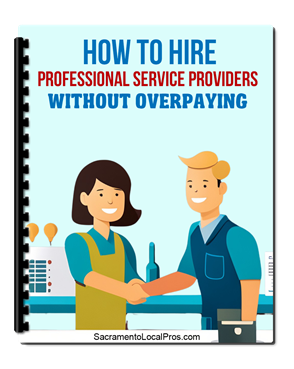Managing your finances efficiently is one of the most crucial aspects of achieving both personal and professional success.
Whether you’re running a business, planning for retirement, or navigating taxes, financial oversight can often become overwhelming without the right expertise.
A Certified Public Accountant (CPA) brings specialized skills and strategic insights that can prevent costly errors, maximize your financial potential, and ensure compliance with complicated regulations.
By partnering with a CPA, you gain access to proactive guidance tailored to your unique financial situation, helping you make informed decisions at every turn.
We'll cover twelve key ways a CPA can transform your financial strategy and safeguard your future prosperity.
1)) Tax Planning And Preparation
Tax planning and preparation serve as critical tools in ensuring your financial health is well-maintained and sustainable.
A CPA brings in-depth knowledge of tax regulations and updates, helping you identify deductions, credits, and strategies that can minimize your liability while keeping you in compliance with the law.
By meticulously organizing your financial records and assessing your income, expenses, and investments, they can forecast potential outcomes and help you avoid common pitfalls that lead to penalties or missed opportunities.
This proactive approach not only alleviates stress during tax season but also ensures that you are making informed decisions throughout the year, safeguarding your financial future.
2)) Identifying Tax Deductions
A CPA plays a vital role in helping individuals and businesses uncover eligible tax deductions that they may otherwise overlook.
By thoroughly analyzing your financial records and understanding the constantly evolving tax laws, a CPA can identify areas where you can save money legally and effectively.
This diligent approach can significantly reduce your taxable income, leading to substantial savings while ensuring compliance with regulations.
With their expertise, a CPA not only highlights deductions but also provides tailored advice on structuring your finances in a manner that minimizes tax liabilities.
This level of professional guidance helps you retain more of your earnings and avoid potential errors that could result in audits or penalties, providing peace of mind and financial clarity.
3)) Avoiding IRS Penalties
Properly navigating complex tax regulations is vital to preventing unnecessary penalties from the IRS.
A CPA possesses the expertise to ensure that your financial records and tax filings are compliant with current laws and regulations.
They can identify potential risks and address discrepancies before they result in issues, safeguarding you from costly fines.
By staying updated on changes in tax legislation and providing accurate guidance, a CPA promotes adherence to legal requirements while helping you avoid common pitfalls.
This level of proactive management offers significant financial protection and reduces stress during tax season.
4)) Financial Record Organization
A CPA provides invaluable assistance by ensuring your financial records are precise, accessible, and well-maintained.
They meticulously organize your accounting data, helping you track income, expenses, and investments efficiently.
This level of organization is crucial for identifying discrepancies, preventing errors, and avoiding penalties that may arise from mismanaged accounts.
By maintaining clear and accurate financial records, a CPA also helps streamline your decision-making process, as you'll have a reliable understanding of your current financial standing.
Furthermore, during audits or tax evaluations, organized records demonstrate compliance and professionalism, offering greater peace of mind and a smoother overall experience.
5)) Budgeting And Cash Flow Management
A CPA can serve as a vital resource in helping individuals and businesses make informed financial decisions, especially when it comes to crafting effective budgeting strategies and managing cash flow.
By analyzing income patterns, identifying spending trends, and forecasting future financial needs, they ensure that resources are allocated efficiently, reducing the likelihood of overspending or running into liquidity issues.
Their expertise allows them to anticipate potential financial challenges and recommend practical solutions, such as prioritizing essential expenses or creating contingency plans for unexpected events.
With their guidance, it becomes easier to maintain financial stability, achieve long-term goals, and avoid errors that could lead to significant monetary losses.
Their role is instrumental in providing clarity and direction, even in complex and dynamic financial scenarios.
6)) Strategic Financial Advice
Strategic financial advice from a Certified Public Accountant (CPA) can serve as a guiding force in navigating complex financial landscapes and making informed decisions.
With their extensive knowledge of tax laws, regulations, and financial principles, CPAs are equipped to evaluate your financial situation and identify potential risks or inefficiencies.
They can assist in creating tailored strategies that align with your objectives, whether it's reducing tax liabilities, increasing savings, or investing wisely for the future.
This level of expertise ensures that every financial decision is made with precision, minimizing errors and avoiding potential setbacks that could disrupt your financial stability.
By relying on a CPA’s guidance, individuals and businesses alike can gain confidence in their financial path and work towards achieving sustainable growth and success.
7)) Retirement Planning Guidance
Planning for retirement can be daunting, but a CPA’s expertise can provide the clarity and structure needed to ensure a secure future.
They can analyze your current financial situation, assess your long-term goals, and create tailored strategies to help you build and preserve your retirement savings.
With extensive knowledge of tax laws, financial projections, and investment opportunities, a CPA can identify the most effective ways to maximize your income and minimize unnecessary tax burdens.
Whether it’s helping you choose the right retirement accounts, preparing for healthcare expenses, or ensuring your assets are allocated appropriately, their guidance can make a significant difference in avoiding financial pitfalls and achieving true peace of mind for your later years.
8)) Business Expense Tracking
Keeping track of business expenses can be overwhelming, especially for small business owners or entrepreneurs managing multiple responsibilities.
A CPA can play a pivotal role in ensuring that your expense records stay accurate and compliant with regulations, which is essential for maintaining healthy financial management.
They can help identify deductible expenses, streamline record-keeping practices, and provide insight into areas where costs can be effectively managed or reduced.
By organizing and reviewing your financial documents, a CPA can help you avoid errors that might not only lead to costly penalties but also hinder the growth of your business.
Their expertise ensures that nothing is overlooked, helping you stay on top of your finances and make better decisions for your business's future.
9)) Investment Portfolio Management
A CPA can provide critical guidance when it comes to managing your investment portfolio, helping you make informed decisions to maximize returns and minimize risks.
Their expertise allows them to analyze market trends, assess the tax implications of various investments, and identify opportunities that align with your financial goals.
By carefully evaluating your portfolio, a CPA can ensure it is well-balanced and diversified, reducing exposure to unnecessary risks while enhancing long-term stability.
This level of strategic oversight can help you avoid pitfalls that could lead to significant financial losses, ensuring your investments contribute positively toward your overall financial success.
10)) Audit Preparation Support
Engaging a Certified Public Accountant (CPA) for audit preparation support can significantly enhance your financial processes and safeguard your organization from potential errors or compliance issues.
A CPA brings extensive expertise and attention to detail, ensuring that all financial records are accurately organized, reviewed, and aligned with current regulations.
By methodically addressing discrepancies and identifying risks beforehand, they help create a roadmap for a smooth audit process, reducing unnecessary stress and minimizing the likelihood of penalties.
This proactive approach not only facilitates a more efficient audit experience but also fosters increased transparency and trust with stakeholders, which is crucial for maintaining the reputation and financial health of your business.
11)) Compliance With Tax Regulations
Compliance with tax regulations is an essential aspect of managing any business, as failure to adhere to these laws can result in severe financial penalties, audits, and legal complications.
A Certified Public Accountant (CPA) brings expertise to the table by ensuring your financial records are accurate, tax filings are completed on time, and deductions are appropriately utilized—ultimately reducing the risk of errors or oversights.
With an in-depth understanding of ever-changing tax codes and regulations, a CPA can identify potential issues before they arise and implement strategies to keep your business in good standing with the authorities.
This proactive approach not only safeguards your finances but also provides peace of mind, allowing you to focus on growth and innovation without the burden of compliance challenges looming over your operations.
12)) Long-Term Financial Planning
Long-term financial planning plays a critical role in safeguarding your financial future and avoiding errors that could lead to significant setbacks.
A Certified Public Accountant (CPA) can provide valuable insights and strategies tailored to your unique circumstances, helping you structure your finances to meet both current and future needs.
Through detailed analysis and forecasting, they can assist with setting achievable financial goals, building robust investment plans, and identifying potential risks before they escalate.
Their expertise ensures that every aspect of your financial portfolio, from tax strategies to retirement accounts, aligns with your overall objectives.
With their guidance, you can make informed decisions that not only protect your wealth but also secure a stable foundation for years to come.
Conclusion
Achieving financial security and growth requires a proactive approach and informed decision-making.
By leveraging the expertise of financial professionals, you gain access to personalized strategies tailored to your unique goals and circumstances.
Their insights help you navigate the complexities of wealth management, ensuring each financial decision is aligned with your long-term vision.
Whether you're planning for retirement, managing investments, or optimizing tax strategies, a well-crafted financial plan inspires confidence and peace of mind.
With the right guidance, you can safeguard your assets, adapt to challenges, and take advantage of opportunities, building a prosperous future for yourself and your loved ones.
Download Our Free E-book!







